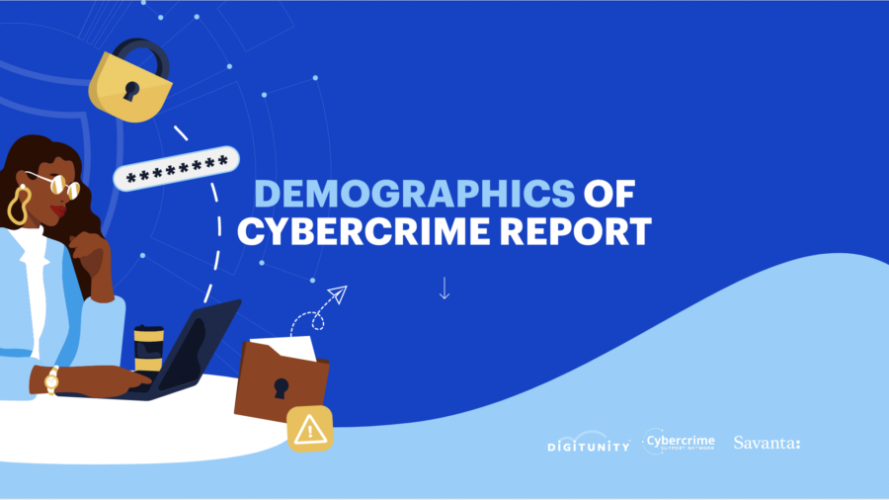
Women, Teens, & People of Color feel less private and safe online
New research illustrates that online experiences are not the same for everyone and cybercrime hurts some groups more than others.
North Conway, NH, September 30, 2021 — The pandemic increased our society’s dependence on technology, accelerating the rise of people accessing the internet through computers and mobile devices to perform their work and connect with family and friends, as well as obtain critical healthcare and social services. However, as a new wave of digital users become more confident on the internet, increased usage opens them up to a wide and varied exposure to scams, identity theft, and physical harm at the hands of people they meet online.
The findings of a new research report “The Demographics of Cybercrime”, released earlier this week by Malwarebytes, in partnership with Digitunity and Cybercrime Support Network, support those feelings of insecurity, especially for segments of the population that also face other social and economic barriers. Women, teens, and people of color suffered more frequent cyberattacks, more recent cyberattacks, and were more substantially stressed by the cyberattacks themselves.
“New adopters of technology are disproportionately more vulnerable to online threats and bad actors,” says Scot Henley, Executive Director of Digitunity. “Through our partnership with Malwarebytes, tens of thousands of devices made available to low-income families will be loaded with robust antivirus and antimalware protection.”
Digitunity works to ensure everyone who needs a computer has one. As the individuals and families served become proficient internet users, Digitunity believes, no matter their gender, race, income level, education, or age, they deserve to feel safe and private online.
Key Findings
- None of the respondents were successful in completely avoiding suspicious online activity, no matter their gender, race, age, income, or education level.
- 50% of people do not feel private online.
- Globally, women feel the least private online (53% compared to 47% of men).
- 31% of people do not feel safe online.
- Globally, women also feel the least safe online (35% compared to 27% of men).
- Only 79% of respondents said they are familiar with antivirus products.
- 10% of those who use antivirus do not know what it protects them from.
- 46% of women said they had their social media accounts hacked, compared to 37% of men.
- Only 47% of BIPOC respondents avoided the financial impact due of cybercrime, compared to 59% of all respondents, making BIPOC respondents the hardest hit financially by cybercrime.
- 21% of women and 23% of BIPOC respondents said they experienced “substantial” stress in dealing with online suspicious activity, compared to 17% of all respondents.
Research findings are based on a survey conducted by Savanta Inc. across the US, UK, and Germany between July 27 and August 9, 2021. For this study, 5,000 respondents were asked general questions around suspicious online activities. Results of any sample are subject to sampling variation.
To learn more about the findings from this report, visit:
https://www.malwarebytes.com/resources/2021-demographics-of-cybercrime


